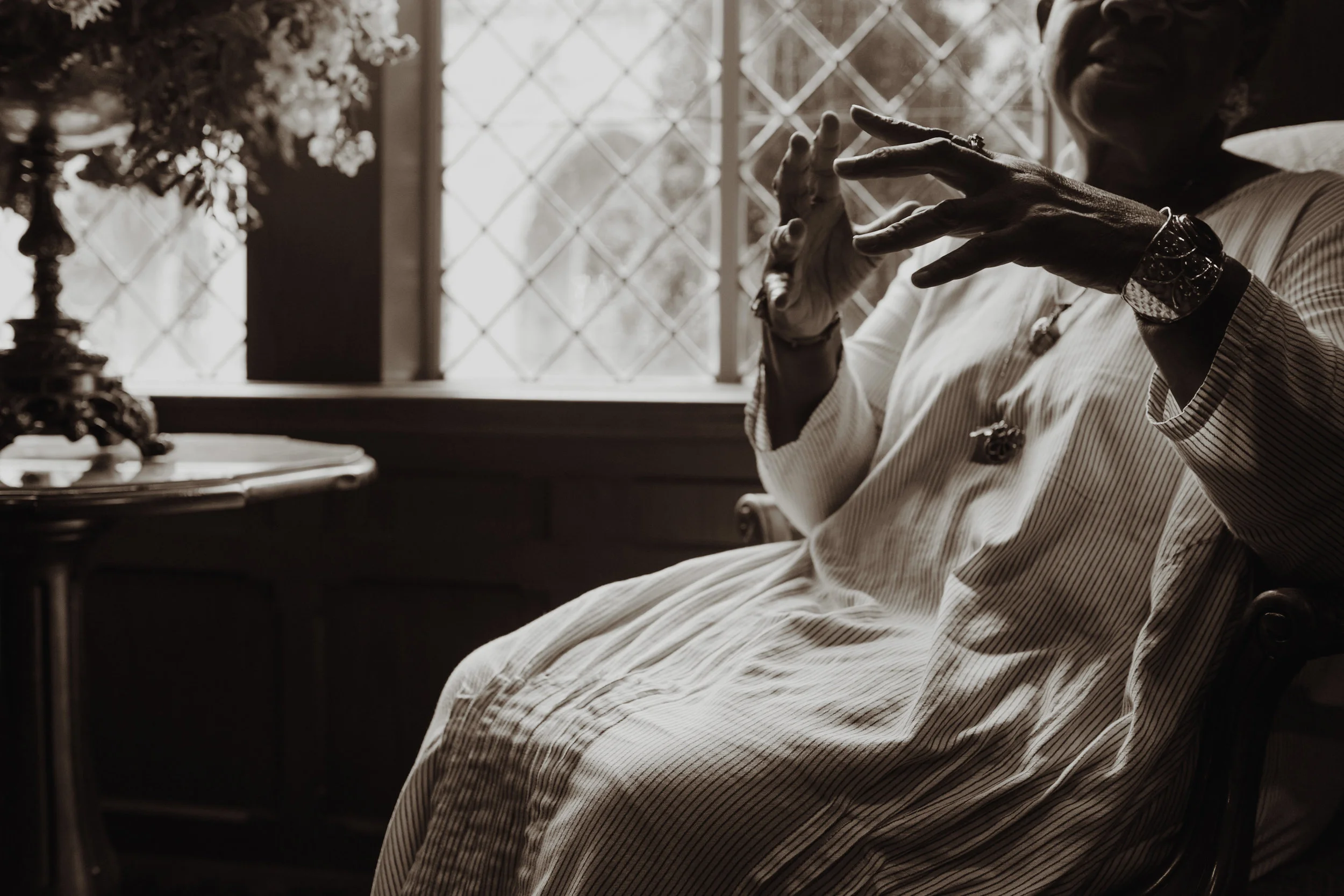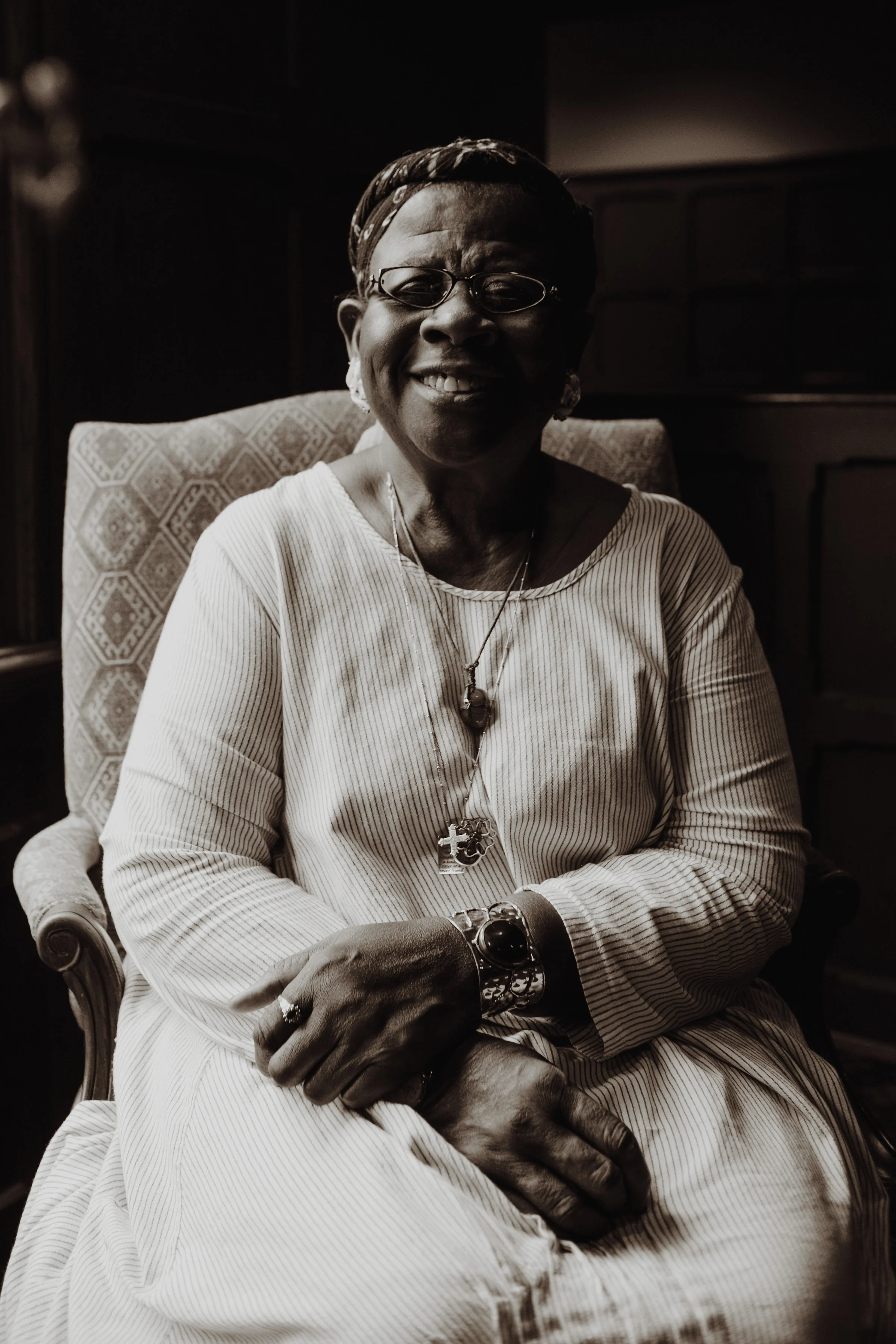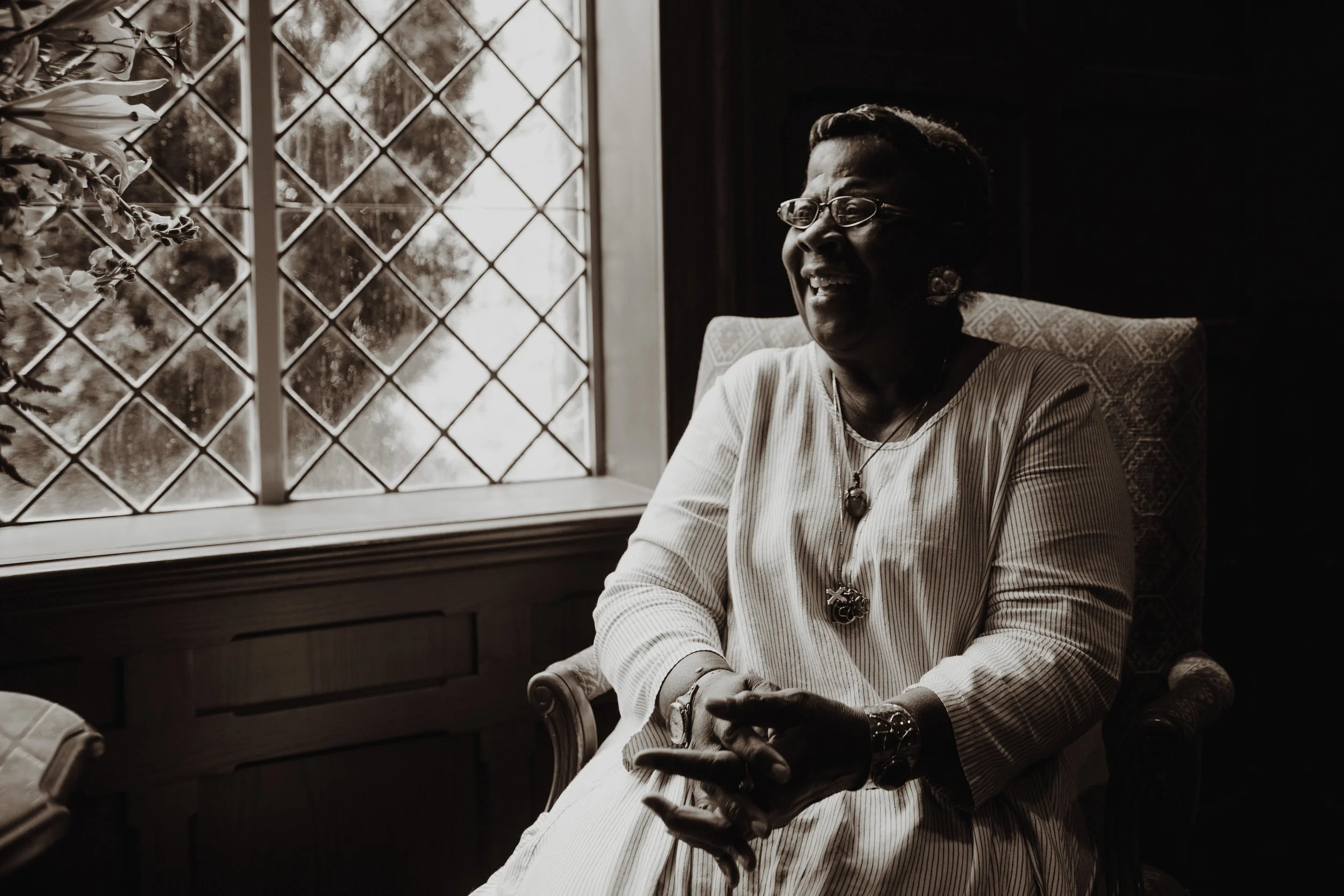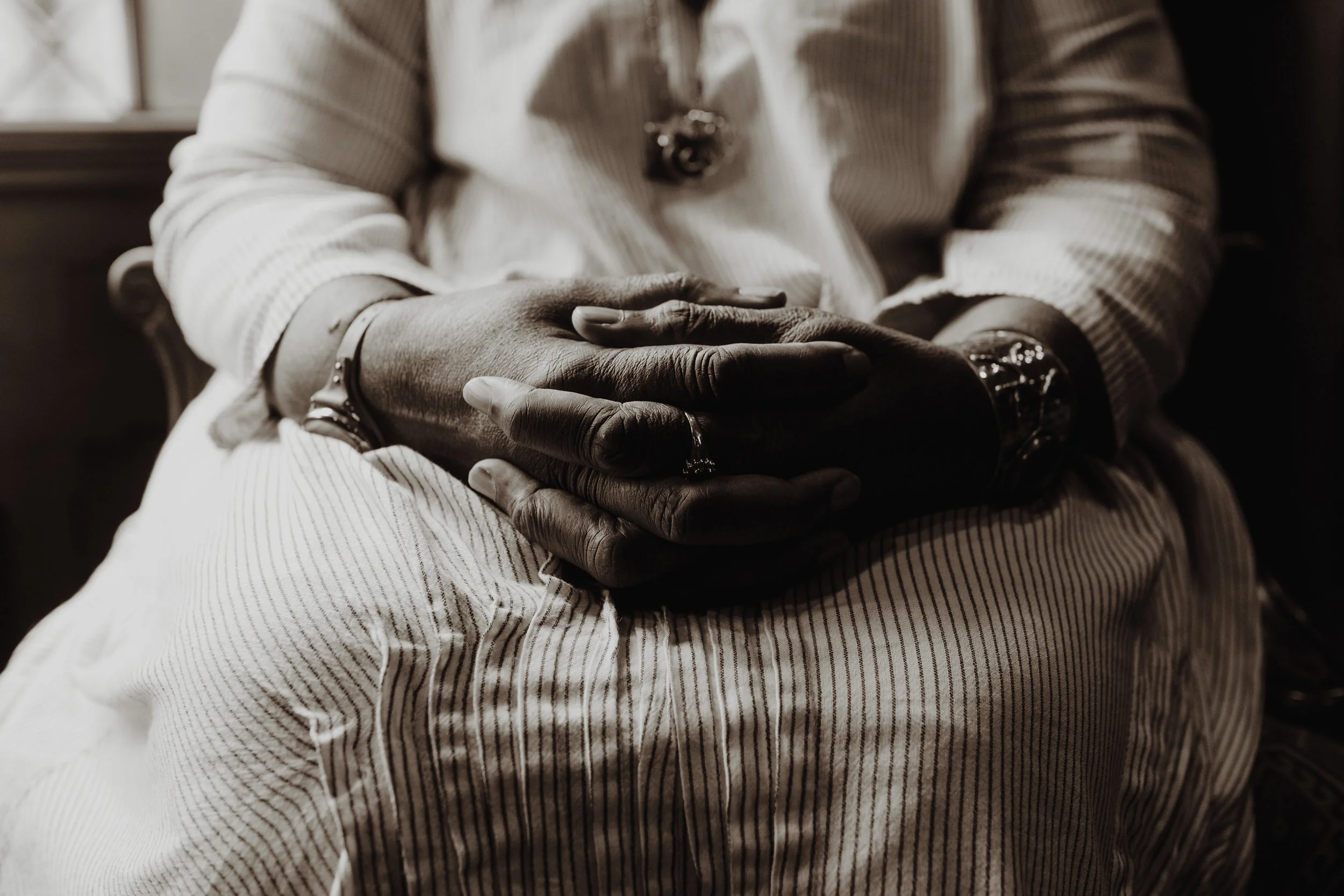Compassionate Truth Teller

In a diocese and denomination here in America where the majority of people are white, Dr. Catherine Meeks has sought to create "enthusiasm and energy" when talking about race, how it affects us, and how we can view it through a spiritual lens to make positive change.
She is the founding executive director of the new Absalom Jones Center for Racial Healing. As of October, it is serving as a support for the entire Episcopal Church. Before starting the center, she was the chair of the Diocese of Atlanta’s Beloved Community: Commission for Dismantling Racism. Before that, she was head of the African American studies program at Mercer University.
Over the course of a few conversations with Pathways, Dr. Meeks shared her perspective on how people tend to deal with race, based on her decades of facilitating college courses and workshops on the topic. Below are excerpts of our interviews, lightly edited for length and clarity.
PATHWAYS How did you start down the path of helping address racial healing and reconciliation? What inspired you to get involved in that? What spoke to you about it?
DR. MEEKS I think my faith, and my sense about dealing with racism in America, and the absolute indefensibleness of racism, and my own sense of wanting to be a liberated person. All of that factored into that.
Growing up poor and black in Arkansas and going to college and seeing injustice and inequity. And living in Los Angeles, you know, it is just one thing after another. And you just keep on trying to be a faithful person and trying to be a responsible person, and it leads from one act of activism to the next.
When you see an act of injustice and stand up against it, it gives you a little more courage to stand up the next time you see one.
PATHWAYS You’ve said that under your chairmanship, the Commission for Dismantling Racism tried to reimagine its work. In addition to dismantling racism training, there were book studies, film screenings, and pilgrimages to remember people who were lynched.
DR. MEEKS We did all of these things to say the work of dismantling racism is not just a one-day training. And that the individual parishes [can start] to think about how they will be involved in this work.
PATHWAYS To have an ongoing conversation, why do you think that is important?
DR. MEEKS Racism is not going to go away anytime soon. And Christians have a responsibility to be trying to be — as much as they can be — what God put them on the earth to be. And not dealing with racism hinders you from that. The dismantling of racism work is also about spiritual formation, and it is a lifetime of work. It goes on and on, so we have to try to get folks to wake up to that fact as much as possible.
My biggest desire is for people to become awakened to the need to be dismantling racism in their own space and to figure out ways to do that themselves. When that happens, then the work is really doing what it is supposed to.
PATHWAYS As you are doing some of these trainings, I imagine you might be met with some resistance. What are the biggest challenges for people when talking about race?
DR. MEEKS The biggest resistance used to be people thinking we’re making the problem bigger by talking about it.
But I think the hardest part for white people to get is the concept of white privilege... white privilege is just one of the harder concepts for people to be able to really allow themselves to resonate with because it means having to rethink a lot of things. If you start thinking that you are where you are because of your skin and that other people who don’t have that kind of skin have a harder time in the world, and that’s the way this country is constructed — that is really difficult for people to buy into.
PATHWAYS So maybe someone says, “I worked hard for everything I have.” How do you move the conversation beyond that or acknowledge that, but also help people understand other possibilities?
DR. MEEKS I get that comment almost every time there is a class or conversation about race: “My family was really poor. We lived somewhere without plumbing.” And I understand that, and it is not lost on me that that was a hard life, and I can appreciate it.
But we’re talking about white-skin privilege. We are not talking about white economic privilege or lack thereof. So working hard doesn’t have anything to do with it. It doesn’t matter if you were as poor as dirt. You could clean yourself [up] and go out into the world, and you would be treated differently than a person of color. So, it is about the way that we have imagined the value of skin in this country that is the issue.
That is a hard concept; I think because most white folks haven’t had to think about it. And when you start talking about it, it is hard to accept it because once you do, then you’ve got to start looking at everything — all the premises you hold about how reality ought to exist in this country have to come into question. So, I understand people resisting having that conversation.
But that is what’s necessary, that shift in your worldview that begins to say, “No. You’re God’s child, and I’m God’s child, and we deserve to have the best we can get here.”
PATHWAYS So some people aren’t ready for that mind shift. But you’ve said the majority of people do come to workshops ready to do this work. What does it take to be ready to go there?
DR. MEEKS I think it takes having some real honesty, and I think for people of faith, just being open to how God can transform you is really a key piece.
So you start asking questions. You start thinking differently, and before you know it, you’ve gone way down the road from where you used to be, which is what transformation is. That’s what religion is supposed to do.
PATHWAYS Do you think fear is what racism is rooted in, in general? The fear of the unknown, the fear of change?
DR. MEEKS Of course... It is also rooted in a real scarcity mentality where you think, “If you have what you need, then I can’t have what I need.” As opposed to realizing that the universe is abundant, and we can all have what we need.
PATHWAYS You were mentioning earlier that things will not be right and just until the premise of society being built on valuing white skin more than other types is changed. How does that take place?
DR. MEEKS What I say to folks is how you stand up in the workplace, what you say in the boardroom, all these things make a difference going forward. I don’t know what it is going to take to reconstruct the way we do stuff in America. I don’t really know the answer to that question. I just know that as Christians, we have to be faithful in terms of trying to make the space where God’s kingdom can be seen, and every time we stand against oppression, we say something for the kingdom.
PATHWAYS So is part of that being honest? Because here is the thing, you’re an expert. Others may not have that confidence. As the average parishioner wanting to engage, is it partially knowing yourself and knowing that you might not be 100 percent there or be comfortable when it comes to talking about race?
DR. MEEKS Really, I think it’s confession, confession of where you are. People respond well to honesty. So if you just say, “I’m leading this book study, and I’ve never done this before, and I’m nervous about it. But I really believe that this is a good book to read, and I want to do this and do it well,” I think that people in the room will appreciate that, and people will be willing to be honest themselves.
You get back what you put out a lot of the time. So if you’re willing to just be vulnerable by being honest, that goes a long way toward creating a brave space.
PATHWAYS Do you think that’s what it’s going to take to dismantle racism — having conversations with people that might not be as like-minded as you? Or is it talking with family or friends? Can people have fruitful conversations around this on social media?
DR. MEEKS Well, it depends. People say all kinds of stuff on social media I don’t think they’d have the courage to say face-to-face to somebody. What you have to do, I think, is to try to make sure you’re not being a coward and that you’re taking whatever opportunities that come in front of you. But you don’t have to be someone that makes people want to run and hide when they see you because you’re going to start a confrontation with them.
I really think that in the present moment, everybody needs to take a deep breath.
It is distressing, but the Ku Klux Klan has been around for 100 years. And these Nazi folks? They are not new. They’ve been around... We’ve known about hate groups for a long, long time. I am not going to be blown away about it.
I am going to stay focused and stay faithful and keep doing the work that needs to be done. Otherwise, I just get to be part of the problem. If I am going to go sit in my room lamenting and lamenting and lamenting, then I am just joining them. I feel like we really have to watch out about that. And they are winning when you let them do that. They’ve stopped your capacity to be a positive force in the world.
PATHWAYS How do we reconcile that perhaps we all may have some prejudices with wanting to be part of the solution?
DR. MEEKS It’s also important to realize that just because you have some prejudices, it does not necessarily mean that you’re just some horrible person. And I think that people need to be encouraged to be paying attention to what they are prejudiced about and how they got that way. And what they can do about it, rather than beating themselves up about it.
That means white people need to wake up to their bigotry if they are holding onto it. I also tell white people, don’t waste your energy on guilt. And black people need to wake up to how we have become victims in this world and to look at how much of that we want to be informing our lives and say, “Yeah, I’m black, and I grew up poor in Arkansas, but God made me, and God lives in me. And there are things I can do no matter what the culture says. I can defy the culture, and I can be whoever God wants me to be.”
That doesn’t happen for everybody, and I understand that. It didn’t happen for everybody in my family. But it was and still is a fact that there’s the possibility out there, and whatever ways that you can embrace it, that is good.
My mission is to help people to be willing to wake up. You know, no matter who you are — to be awake to what’s in front of you, to what you’re called to do; finding your way through the world with as much authenticity and empowerment as possible and to bring as much light as you can. To let the light shine through you as best you can.
PATHWAYS If you could challenge the people of the diocese to do something, what would you challenge them with?
DR. MEEKS You know we have this wonderful motto, “to love like Jesus.” Really take that seriously — the idea that God really does live in every person. And that God made everybody and even more than that, that God loves everybody in an equal fashion. If we really thought that, we wouldn’t have people sleeping under bridges. We wouldn’t be killing people in other parts of the world... The greatest challenge is that we just really need to see the face of God in each other and act accordingly. God loves us all equally. I remember when I first realized that at the very depths of my soul. I didn’t like it because there were some folks I didn’t want God to love. I wanted them to be sent off the planet, you know. [laughs] But that is not how it is at all. It’s unsettling.
That would be the challenge. You have to internalize this deeply: Can you see God’s face in another person? And then, what does that motivate you to do?
WAKING UP WHITE, AND FINDING MYSELF IN THE STORY OF RACE
By Debby Irving
The author writes about her own often cringe-worthy experience of coming to see systemic racism and understanding her own part in it. From the author: “I hope it will give you or someone you know new insights into how racism works, and why you (or white people you know) can get so anxious when it comes to talking about race and racism.”
AMERICA’S ORIGINAL SIN: RACISM, WHITE PRIVILEGE, AND THE BRIDGE TO A NEW AMERICA
By Jim Wallis
This New York Times best seller by a white Evangelical pastor calls upon people of faith to change the narrative of racial division in America so that it becomes one of fairness for all.
LIVING INTO GOD’S DREAM: DISMANTLING RACISM IN AMERICA
Edited by Catherine Meeks
Part personal stories and part theoretical and theological reflection, these essays aim to show us the ways in which we can forge a new conversation on race.




